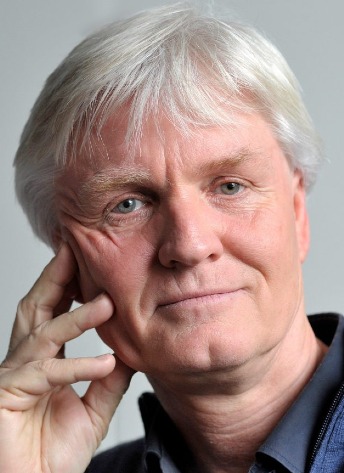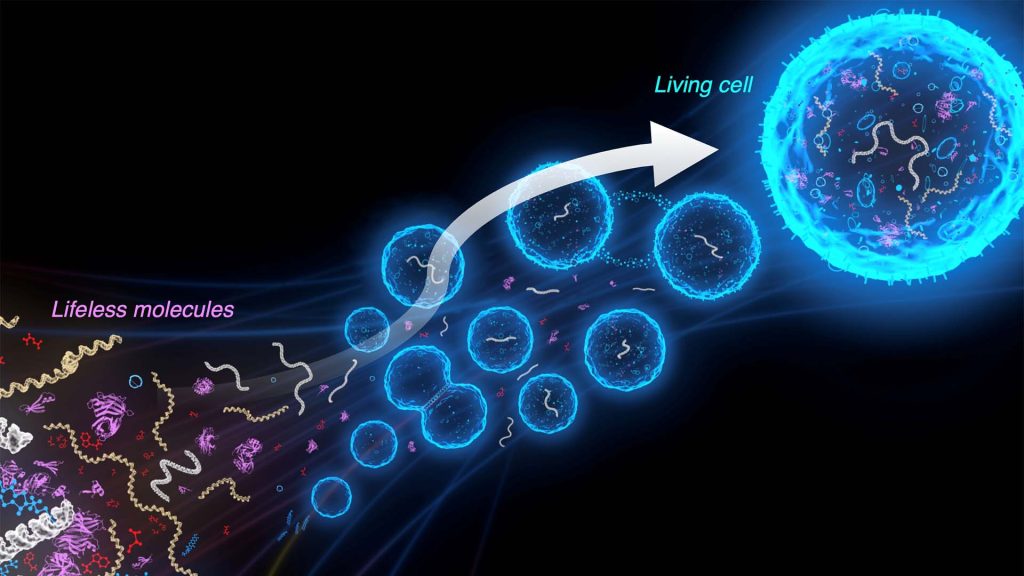Five million ERC Synergy Grant for synthetic cell research

To design reaction networks for recycling of metabolic energy, production of cell building blocks and the construction of a minimal cell division system, Prof. Bert Poolman of the University of Groningen, together with Prof. Petra Schwille (Max Planck Institute in Martinsried, Germany), will receive an ERC Synergy Grant of five million euros. The research will provide insights into how cells regulate the internal environment (homeostasis) and contribute to understanding the mechanism of cell division. Poolman is the coordinator of the six-year project.
The ERC Synergy Grant enables interdisciplinary collaboration of top scientists and focuses on basic science research. They are the largest and most competitive grants from the European Research Council (ERC).
Unique approach
In the research project, Poolman and Schwille will explore how the features of life - compartmentalization, metabolism, cell division and genome segregation - are mechanistically linked and enable autonomous growth of cells. Poolman points out that despite the progress that has been made in this area of research, big steps still need to be made. The two groups of leading scientists will bring a unique approach for this: using their complementary expertise in biochemistry, biophysics and membrane technology, they will build complex systems based on minimal components, integrate them in synthetic cells and regulate their complexity and autonomy.
Reconstructing cellular life
Poolman and Schwille will combine their knowledge of membrane systems, enzymes and cell division proteins to create a blueprint for linking metabolic networks to protein modules for cell division. With this, they are going to reconstruct one of the most central features of cellular life: the autonomous division of proto-cellular compartments with encapsulated self-organizing macromolecules, driven by sustained energy metabolism.
Fundamental insights and blueprint for life
In addition to major technical advances in building cells, the research will contribute to a better understanding of biological mechanisms, which are often hidden in living cells because of their enormous molecular complexity. And it will provide new fundamental insights into some of the key principles underlying cellular life, which should ultimately lead to a blueprint for life.

Poolman works at the Groningen Biomolecular Sciences and Biotechnology Institute of the Faculty of Science and Engineering. The question of how lifeless molecules can come together to form a living cell is central to his work. More about his research:
| Last modified: | 06 November 2024 09.13 a.m. |
More news
-
07 April 2025
Plastic recycling: how to best reuse carbon atoms
Scientists at the University of Groningen are working on new ways to recycle plastic waste into new, high-quality products.
-
07 April 2025
Gratama Jubilee gift for Marleen Kamperman and Marijke Leliveld
Prof. Marleen Kamperman and Marijke Leliveld received EUR 100,000 from the Gratama Foundation for their research project aimed at producing organic textiles for sustainable fashion.
-
03 April 2025
IMChip and MimeCure in top 10 of the national Academic Startup Competition
Prof. Tamalika Banerjee’s startup IMChip and Prof. Erik Frijlink and Dr. Luke van der Koog’s startup MimeCure have made it into the top 10 of the national Academic Startup Competition.
